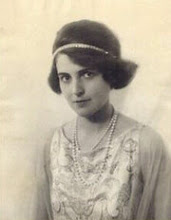
I experience childlike delight when I see my bed at the hostel -- up a ladder, tucked in an alcove, up by a window looking over a roof and garden. On the roof, beer bottles, snack wrappers, signs of life -- but the window looks a little too small for me, and getting wedged in a window in Oświęcim (the town outlying the ruins of Auschwitz) is not my idea of a good time. But the air is fresh and I feel like a kid. I've always had a treehouse thing, a longing for the adventurous, boyish childhood I avoided inside books, and the experience of ascending a ladder and looking out over the world activates a primal, primate thing in me. It's a weird feeling to have in Oświęcim, a town still fully populated with people and pizza restaurants, but any feeling is weird because all you're supposed to feel is fear and sorrow.


It was a cold, wet day, mud on my boots and gloomy clouds, as though the weather adjusted to the visit (how inappropriate would sunshine and songbirds be!). As we passed through empty barracks, bombed gas chambers, rooms full of hair and children's shoes, all with the visceral narration of a tour guide, I forced myself to feel nothing but clouds and mud. It is impossible otherwise. Every thought, feeling, song that passes through my head is cruel, ironic, wrong, and I choose to feel nothing. I look at things. I shelve them. I supress. Should I prostrate myself in the mud, shouting to G-d about injustice? Should I sing with the Israelis bearing flags and guitars, AM YISRAEL CHAI, a triumphant shout of survival?
 I eat soup, later, in the hostel. I am sensitive to the complexity of the taste, the warm salty broth, the texture of noodles, the recollection of the all-purpose Jewish medicine, chicken soup. I feel the warmth restored spoon by spoon, the thawing of a blank body, and by the time I see the room, I'm a kid. I play to reconnect with the self I left on the bus, anything to make looking at a boneyard bearable. I did not experience profound catharsis. I did not weep. I looked and I learned and I struggled to understand. What can a person do next?
I eat soup, later, in the hostel. I am sensitive to the complexity of the taste, the warm salty broth, the texture of noodles, the recollection of the all-purpose Jewish medicine, chicken soup. I feel the warmth restored spoon by spoon, the thawing of a blank body, and by the time I see the room, I'm a kid. I play to reconnect with the self I left on the bus, anything to make looking at a boneyard bearable. I did not experience profound catharsis. I did not weep. I looked and I learned and I struggled to understand. What can a person do next? Later that evening, we met a survivor, Helena Birenbaum, who lived through the physical denigration of concentration camps and the dissolution of her family. She was an amazing speaker. An old woman well-versed in several languages, with just 36 hours of English instruction, she used her hands and simple evocative words -- a misstep was especially touching: she called her sister-in-law her sister-in-love, then smiled at the mistake. Sister-in-love was closer to the truth. I found my numb muscles and bones further reawakened by her words, drawn as I have always been to a good story, and by the hope in her eyes and hands and words, her extraordinary survival. I listened for 2 hours rapt, caught in the voice, and here I felt the heartpound heartache heartwarmth.
Later that evening, we met a survivor, Helena Birenbaum, who lived through the physical denigration of concentration camps and the dissolution of her family. She was an amazing speaker. An old woman well-versed in several languages, with just 36 hours of English instruction, she used her hands and simple evocative words -- a misstep was especially touching: she called her sister-in-law her sister-in-love, then smiled at the mistake. Sister-in-love was closer to the truth. I found my numb muscles and bones further reawakened by her words, drawn as I have always been to a good story, and by the hope in her eyes and hands and words, her extraordinary survival. I listened for 2 hours rapt, caught in the voice, and here I felt the heartpound heartache heartwarmth. I am amazingly blessed to live at a time when Holocaust survivors still live to tell their stories, stories I will tell my own children, lest anyone ever forget. The boneyard will last forever, those feelings of dull pain and misery and frustration, but life is what is delicate and temporary and beautiful. Meeting Mrs. Birenbaum was a revelation. That night, I climbed the ladder, got in bed, opened the window, and breathed in the clean, clean air.
I am amazingly blessed to live at a time when Holocaust survivors still live to tell their stories, stories I will tell my own children, lest anyone ever forget. The boneyard will last forever, those feelings of dull pain and misery and frustration, but life is what is delicate and temporary and beautiful. Meeting Mrs. Birenbaum was a revelation. That night, I climbed the ladder, got in bed, opened the window, and breathed in the clean, clean air.

No comments:
Post a Comment